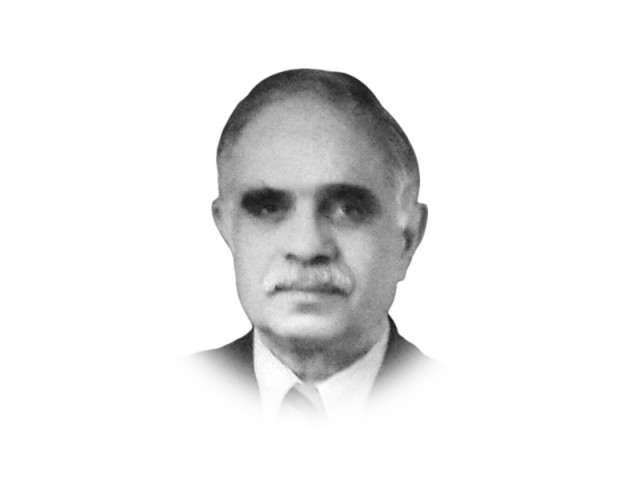India versus Modi
Balance is the best course for all concerned more so for Modi because he is the one jumping around on very wobbly legs

India versus Modi
India’s success in the creation of Bangladesh, which prompted Indira Gandhi to claim that the Two-Nation Theory has been buried forever in the Bay of Bengal, was also the beginning of India’s end. Suffering from an extreme degree of inferiority complex due to prolonged Muslim rule, Hindu nationalism has finally found its expression. India’s arrogance of power has done the rest. The deceptively thin veneer of ‘Shining India’ is hiding under the strong currents of divisive forces. These were held at bay by secularism, the cornerstone of nation-building espoused by India’s founding fathers. The events of 1971 provided the catalyst, which spurred the rise of Hindutva and sounded the death knell for secularism. The consequent reaction of divisive forces against a common enemy is not very surprising.
What is Hindutva doing to India? It is simply hardening everyone’s religious beliefs. It would not be so alarming in itself but for the prejudice of its followers. The extremism of Hindutva followers, while alienating the minorities at one end, is further widening the divide between the upper and lower caste Hindus at the other. Such complex and interwoven fault lines, already at work at different levels, have the capacity to destroy this delicately balanced multi-religious, multi-ethnic, multi-cultural and multi-lingual society. One of the most diverse and the so-called largest democracies is thus getting ready to implode from within. And all this is happening because of India’s shortsighted leadership, which while finalising the plans for Pakistan’s break-up, also set in motion forces — particularly the upsurge in Hindu nationalism — which will ultimately cause its own undoing. Once unleashed, such forces assume dynamics of their own and invariably outrun the reach of their perpetrators. Force or violence is the last thing which can be employed to harness the energy thus generated. Blocked at one expanding leakage point, this ever-increasing force would find other outlets.
If the unrest in the famous seven sister states in India’s northeast and the spiraling violence in its red corridor in the centre and south is not enough, then add to this the growing poverty, the expanding divide between Hindus and Muslims and almost all other minorities, and you have the recipe for the biggest disaster itching to happen. Enter Mr Modi spearheading the strongest anti-India force in the garb of reviving Hindu nationalism. His strategy of amassing and displaying the strongest possible power from the outside to contain or bottle up all the fissiparous tendencies within is very attractive. But is it effective as well? It might just work, in which case, the world will have to deal with a behemoth on the roll with no idea of its power or the effects of its bullying. Those hoping to co-opt India as a strategic partner in the regional or global context must not forget the Taliban, al Qaeda and the Islamic State, the living Frankenstein’s monsters going after their own creators. Imagine a world with an ambitious India, strong and upwardly mobile China and a resurgent Russia, all vying for their share in the power equation presently dominated by America and to an extent by Europe. With the Indian Ocean and most of Asia as the battleground, the tussle for domination could take any form or shape. Keep in mind others, especially non-state actors, also fighting for spoils in this power struggle.
What if Modi and his party fail and end up exacerbating the existing fragility of the Indian union? Reaction to forcible retention of people or states against their will can be catastrophic if it achieves synergy with other centrifugal forces. The domino effect will be too much to handle. The consequences of an unravelling India would be precarious, not only for the region but also for the world at large. Pakistan would be the worst hit because of the existing fault lines within our society. If that was not enough, we are now busy creating divisions within the existing divisions. Like Hindutva in India, the way we have used religion may also end up being our undoing. Unaware or perhaps, unconcerned with this single-most important issue, our leadership is steaming ahead at a tangent, wasting precious time. Staying in power and winning the next election is their only objective.
Are we doomed because India is bad news either way? Perhaps. Power is coercive by its very nature. India must recognise that too much flexing of muscles can be fatal if rest of the body is not functioning in harmony, especially the heart. Pakistan is that heart for this part of the world. Even if everything is in order, we must not forget that the strongest fall the hardest; it is simple physics. But can Modi be made to unlearn the lessons of Hindutva and learn that a stable and strong Pakistan is critical to maintaining that elusive something, called ‘balance’, in the region? Balance, ordained by nature, emphasised repeatedly by Islam, is the best course for all concerned, more so for Modi because he is the one jumping around on very wobbly legs.
Published in The Express Tribune, December 6th, 2014.
Like Opinion & Editorial on Facebook, follow @ETOpEd on Twitter to receive all updates on all our daily pieces.















COMMENTS
Comments are moderated and generally will be posted if they are on-topic and not abusive.
For more information, please see our Comments FAQ